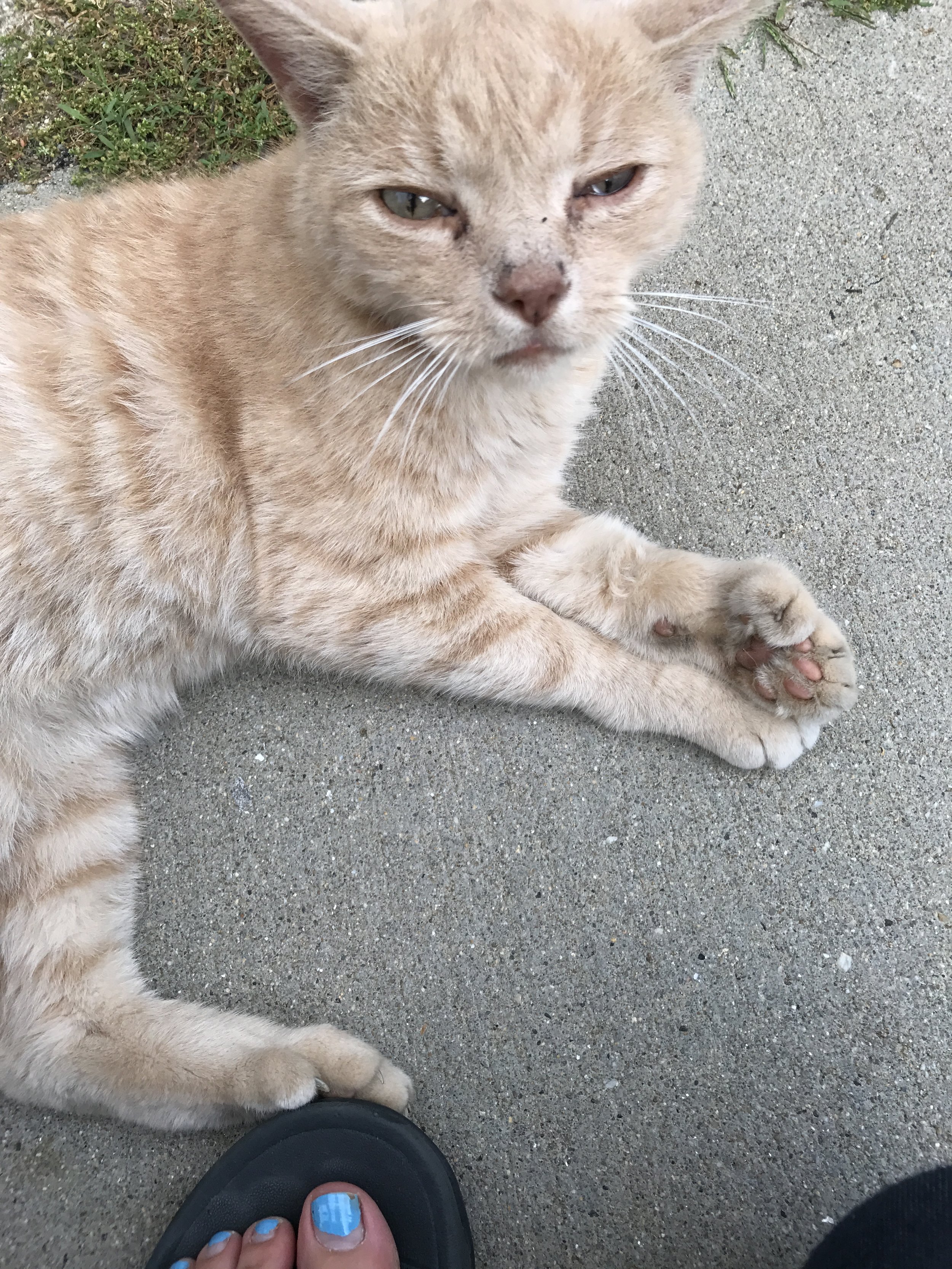Who Tells Your Story: What "Hamilton" Got Right, Got Wrong, and Completely Left Out
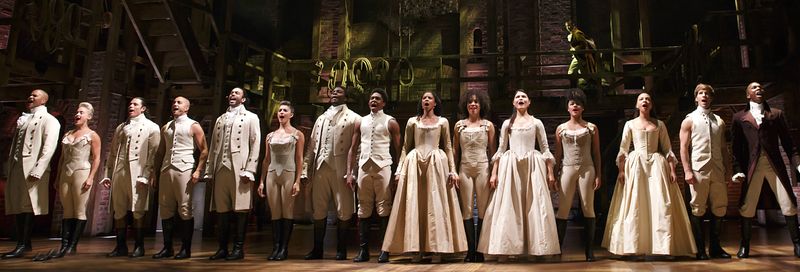 I know I'm late in getting on the Hamilton bandwagon. While I'm not the musical theater aficionado that Smalerie is, I do like musicals. I just rarely go to see them. I had heard good things about Hamilton and its massive popularity, but I somehow never got around to actually listening to the soundtrack. Now I have. Several times in fact, which should tell you how I felt about it.
I know I'm late in getting on the Hamilton bandwagon. While I'm not the musical theater aficionado that Smalerie is, I do like musicals. I just rarely go to see them. I had heard good things about Hamilton and its massive popularity, but I somehow never got around to actually listening to the soundtrack. Now I have. Several times in fact, which should tell you how I felt about it.
As I did with the film Saving Mr. Banks, I became curious about how much of the musical was factual and how much was fiction. I don't expect either musicals or movies to be documentary accurate when covering real-life events, so this isn't a criticism of the play. I just like to know what was changed to make a better narrative and what really happened. A Wikipedia binge ensued and I discovered a treasure trove of true facts, altered facts, disputed facts, and completely omitted facts, from which I will now share highlights with you.
The Schuyler Sisters
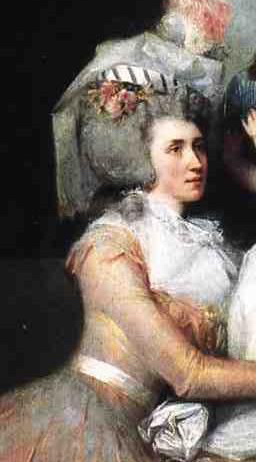
Elizabeth "Eliza" Schuyler Hamilton is pretty well covered in the musical, so I'm going to focus on her older sister, Angelica Schuyler Church. She was married to John Barker Church, a British-born merchant. The play posits that Angelica married more for money and social status than for love, but she apparently thought enough of Church to elope with him when it became clear that her father wouldn't approve of the marriage. She was also not under quite as much pressure to marry rich as the play states, as she had numerous siblings including two brothers.
The two spent the better part of sixteen years living in Europe. John Church spent two years as a U.S. envoy to France. Angelica formed lifelong friendships with several famous men during her time there, including Benjamin Franklin, Thomas Jefferson (who developed a serious crush on Angelica, though it's not clear whether their relationship went any further than some suggestive correspondence), and Alexander Hamilton's old buddy the Marquis de Lafayette. The Churches later moved to London, where Angelica continued to mingle with the wealthy and famous. They returned to America to stay in 1799.
Letters that Angelica exchanged with her brother-in-law Hamilton do suggest a very close relationship between the two. No one seems to know for certain if they had an affair, but Angelica's love of her sister and lengthy time abroad may have prevented this from happening. Nonetheless, Angelica did express some interest in "forming a harem" as the play states. In one of her letters to Eliza, she (jokingly?) suggests that "If you were as generous as the old Romans, you would lend him to me for a little while."
Unlike the play's version, the real Angelica first met Hamilton at his wedding to her sister, by which time Angelica had been married for three years. So the story of Angelica falling for Hamilton and ultimately leading him into her sister's arms is pure invention.
If you're wondering what happened to the third Schuyler sister Peggy, whose full married name was the impressive Margarita Schuyler Van Rensselaer, she married the then nineteen year old son of a prominent New York family at age twenty-four, had three children with him, and died at the young age of forty-two after a lengthy illness. She has a friendly relationship with Alexander Hamilton, who was working nearby during her illness and visited her often.
Aaron Burr, Sir?
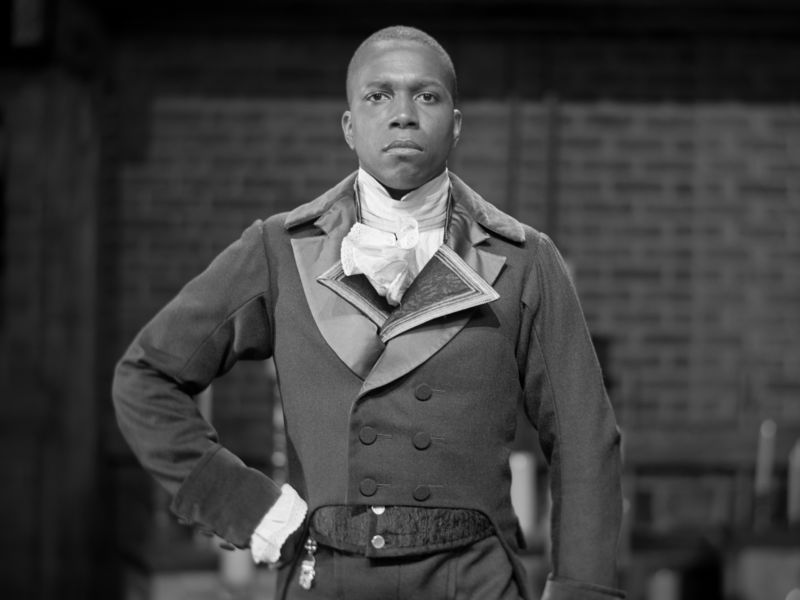
One of the larger overall differences between the history and the musical is just how often Burr shows up in Hamilton's life. They did know each other and had quite a few interactions before they both decided that honor demanded that they shoot at each other. They just didn't cross paths quite so often. The play has Burr serving as a second at the duel between John Laurens and Charles Lee, getting asked to write some of the Federalist Papers by Hamilton, and confronting Hamilton about his affair with Maria Reynolds, none of which he actually did.
The musical blames much of the eventual animosity between Hamilton and Burr on the two men's differing personalities and Burr's successful run for the Senate against Hamilton's father in law. All of this is true, but there was an additional matter which probably didn't help their relationship any. It happened around 1799 and went something like this:
Burr: Hamilton, I am going to establish a water company for Manhattan. I need your support and that of the Federalist party to get the charter I need.
Hamilton: Manhattan desperately needs a source of safe drinking water, so this seems like an excellent idea.
Burr: (under his breath) Also the charter will allow me to build a bank.
Hamilton: Okay, here's the approved charter. Now let's get started on that...
Burr: LOL, it's totally a bank.
Hamilton: Why didn't you just say you were building a bank in the first place?
Burr: Well, I was worried you and the other Federalist would think I would use the bank to make loans to prominent Republicans and solidify my political power in New York.
Hamilton: I see. And what are you going to do with the bank?
Burr: Oh, probably make loans to prominent Republicans and solidify my political power in New York.
Hamilton: ....
Hamilton: Oh look. There's a malaria epidemic in Manhattan.
Burr: Oh?
Hamilton: Yup. But it probably won't be too bad, since people will have clean, safe drinking water from your new oh wait, no, banks don't make water safe to drink.
Burr: Oops.
Can We Agree that Duels are Dumb and Immature?
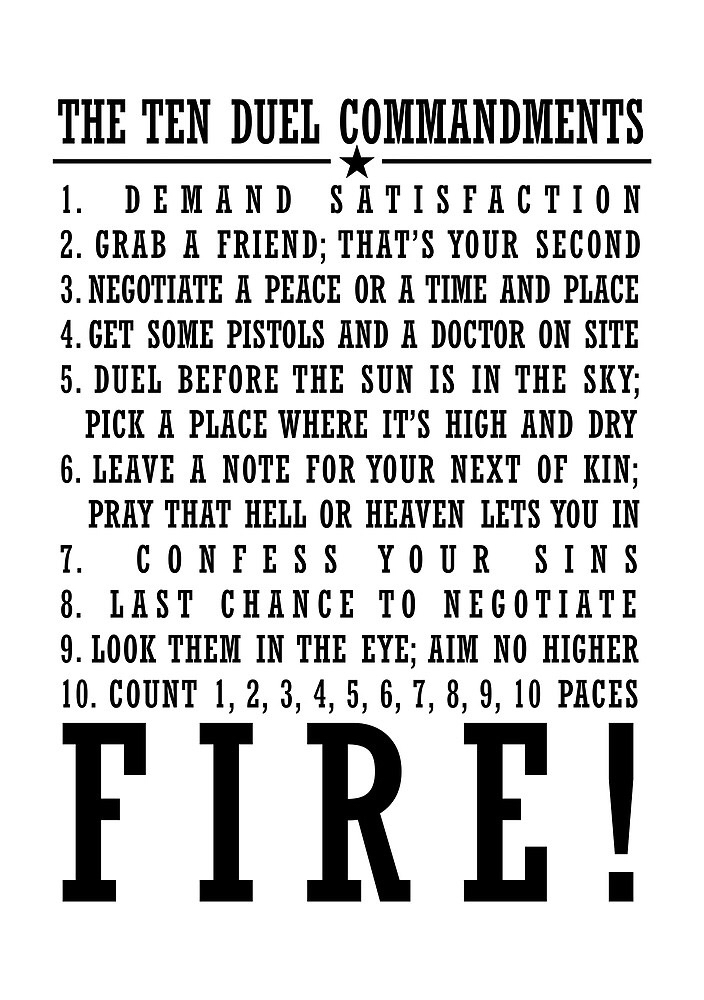
Neither Hamilton nor Burr were strangers to dueling when they went up against each other. Both had been involved in several "affairs of honor," sometimes as seconds to other parties, most of which ended without the need for a duel.
Burr was involved in one particularly interesting duel after being accused of taking a bribe in exchange for a political favor. Burr and his opponent failed to settle their differences and ended up in a duel. Both men fired their pistols, but no one was hit. (I can't tell if they both missed intentionally or were just lousy shots. Please enlighten me if you know more about the duel.) Burr's opponent later said that he shouldn't have accused Burr without proof and Burr accepted this as an apology, ending the matter. Burr's opponent? A Mr. John Barker Church, the husband of Hamilton's sister-in-law.
The Unimaginable
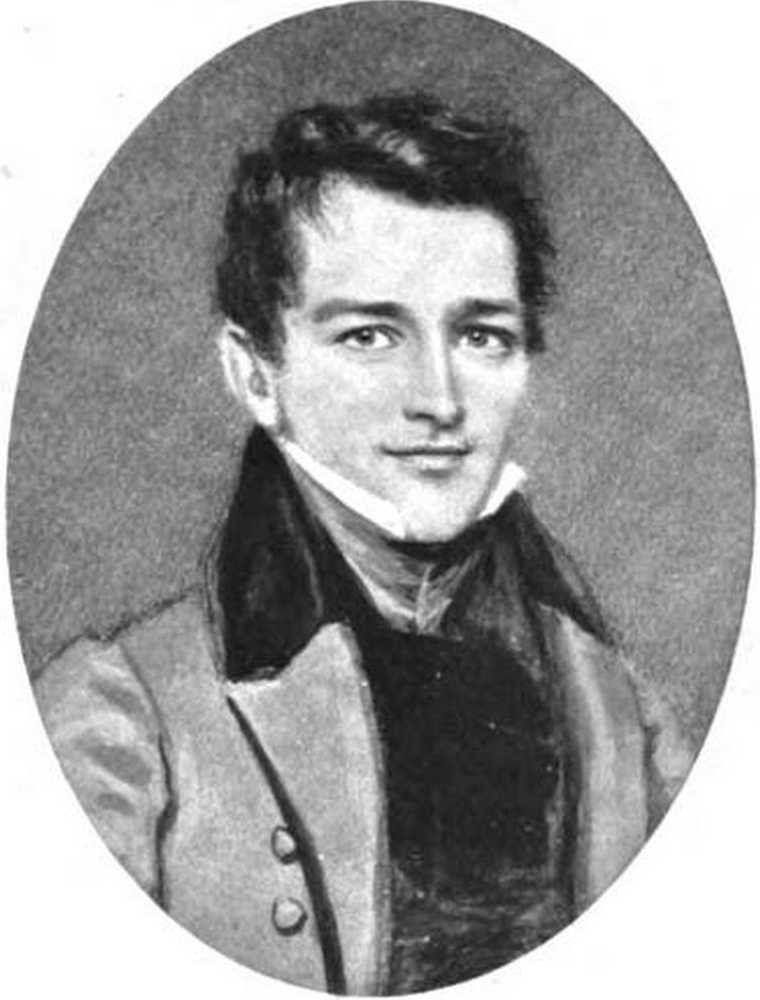
Since we're well into duels now, let's talk about Phillip Hamilton. The death of Alexander and Eliza's eldest son is a key emotional moment in the play and foreshadows Alexander's own death on the dueling field. The real Phillip Hamilton did challenge New York lawyer George Eacker for making a disparaging speech about Alexander Hamilton and later referring to Phillip and a friend of Phillip's as "rascals," a much stronger word then than it is now. The location of their duel was coincidentally close to where Phillip's father would duel Aaron Burr nearly three years later. And Alexander reportedly did advise his son to throw away his first shot. But the facts of the actual duel are rather different.
In the play, Eacker shoots Phillip before the two opponents reach ten paces, even though Phillip is already aiming his pistol into the air. In the actual duel, both men walked the full ten paces and turned to face each other. Rather than firing up, Phillip held his pistol by his side, refusing to raise it to aim at anything. Eacker followed suit and kept his pistol lowered. After about a minute of no one doing anything, Eacker raised his pistol. Phillip did the same and Eacker shot him. Phillip fired one shot after he was hit - which may or may not have been intentional, but didn't hit anyone. The play does a lot to humanize Aaron Burr, so it's surprising that Phillip Hamilton's dueling opponent ends up as more of a villain than he was in real life.
He Aims His Pistol at the Sky?
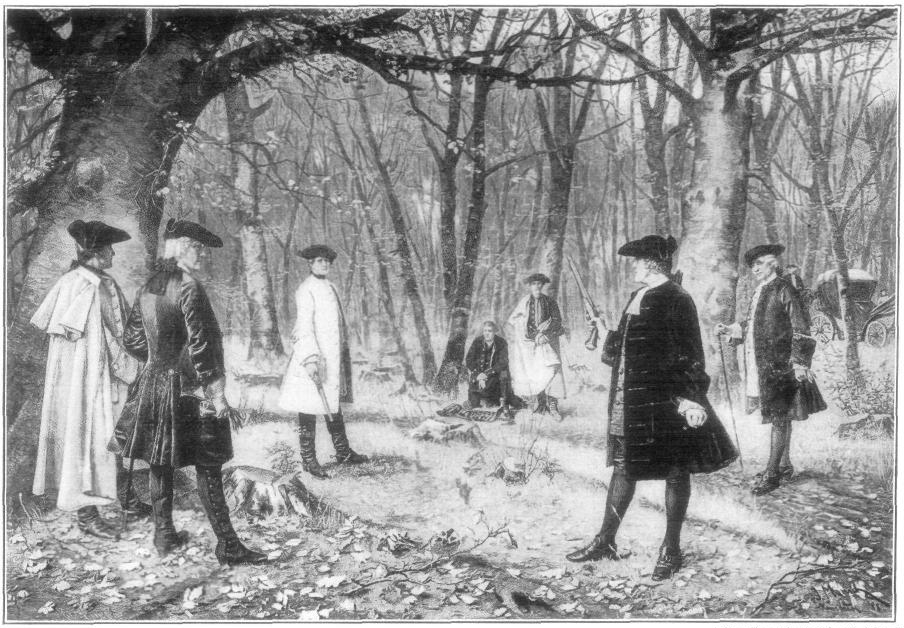
Okay, so a lot of the details of the play differ from the history. But we know what happened at the fateful duel, right? Burr, who had ample evidence that Hamilton intended to shoot to kill, mortally wounded his opponent while Hamilton fired his pistol into the air. A shocked Burr was ushered away from the scene. Hamilton was brought to a friends' home where he died the next day. No questions about any of that, right?
Maybe.
Hamilton did seem to be preparing to take a serious shot, at least from Burr's point of view. He reportedly was carefully inspecting his pistol and did have his glasses on. But other details are not quite as clear-cut. For one thing, no one is entirely sure who shot first. Both Burr and Hamilton's seconds claimed it was the other man and the very brief time between the two shots - less than five seconds - likely made it hard to tell. It is possible that Hamilton intentionally wasted his first shot. Testimony from friends, newspapers friendly to Hamilton, and Hamilton's own writing seem to support this version of events. But some historians have suggested that Hamilton was using a modified pistol with a hair-trigger and accidentally fired before he meant to. Hamilton's writings and conversations with friends stating his intention to fire into the air could have been honest, or they could have been an attempt to provide a reason for his death beyond simply losing the duel.
I Survived, But I Paid For It
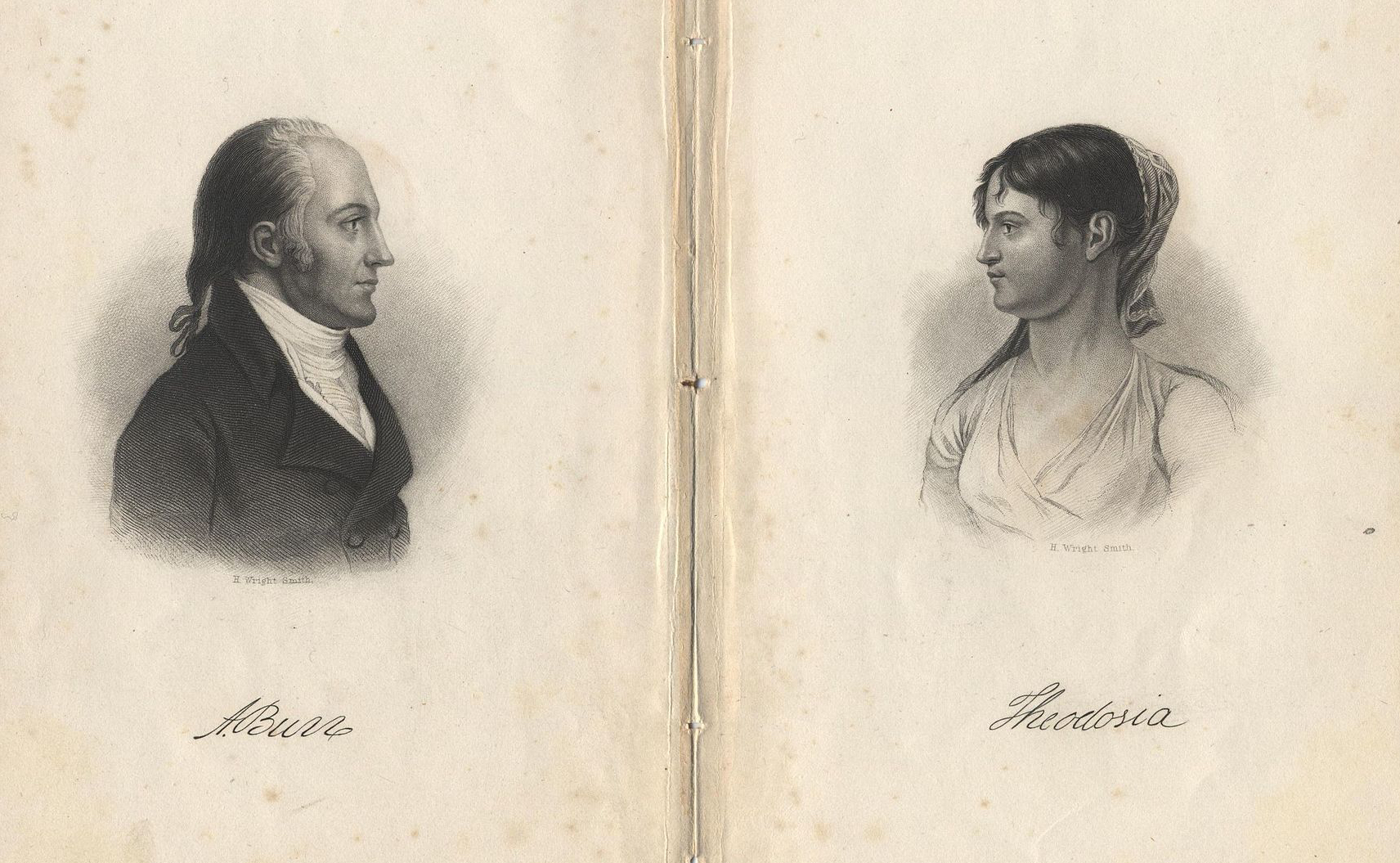
Aaron Burr may be best known for shooting Alexander Hamilton, but it was far from the worst thing that ever happened to him. Burr's life after the play concludes was not a happy one and included several particularly tragic and bizarre stories
Although the duel was illegal in both New York and New Jersey (where the punishment for dueling was less severe), attempts to try Burr for Hamilton's death never went much of anywhere. When his term as vice president ended, Burr headed west to a large tract of land he had leased from the Spanish government. This began one of the stranger chapters in Burr's life. Allegedly, Burr was the ringleader of a plot that may have aimed for anything from a seizure of Spanish controlled lands in the southwest to making Burr monarch of Mexico to taking control of the Louisiana purchase to capturing Washington D.C. Burr was ratted out by one of his co-conspirators, arrested, and tried for treason. He was acquitted, due in part to the evidence against him consisting mostly of his co-conspirator's testimony and a letter translated from a supposedly lost original missive written in code by the same co-conspirator, who had clearly rewritten parts of the letter to hide his own culpability.
Despite the acquittal, Burr was near ruined by the end of the trial. The treason charges, President Jefferson's obvious dislike of him, and the lingering fallout from the duel with Hamilton had crushed any hopes he had of returning to politics. His finances were also a mess and he fled to Europe to escape his creditors. Burr spent about four years traveling around Europe, still trying to drum up support and funds for a military campaign in Mexico, which never happened.
During Burr's self-imposed exile, his daughter Theodosia was working tirelessly to help her father come home. She raised funds to cover his expenses in Europe and eventual trip back and wrote letters to influential people to help ease his return to America. Burr returned from Europe in July of 1812, but Theodosia wasn't well enough to make the trip from South Carolina to New York to welcome him back. She eventually left for New York in December of the same year, but the schooner she took disappeared at sea along with Theodosia and the entire crew, likely the victim of a sudden storm.
Although he had to change his name for a time to hide from his creditors, Burr largely enjoyed a quiet life in New York. He was able to return to legal practice and adopted two sons who may have been his biological children. But his final years were difficult ones. He suffered a stroke left him immobile. He was married to a woman who left him after four months when she discovered he was using her money for unwise land speculation. (Alexander Hamilton Jr. was her lawyer in the divorce.) Their divorce was finalized on September 14, 1836, the same day that Burr died.
Martha Washington Named Her Feral Tom Cat After Him?
You know, you'd think that when a musical makes a point of having a character based on a historical figure say "that's true" about something, you can count on it being true. So I was all set to end this post with a sort of cute, indisputable fact about a kitty. But alas....
The story of America's first First Lady naming a cat after Hamilton, presumably due to the insatiable sexual appetites of both, is a frequently repeated one. Unfortunately, it doesn't seem to be true. The origins of this particular feline footnote are sketchy at best, but many of the tales of Hamilton the alleged philanderer could be traced to his political foes, including Thomas Jefferson and John Adams. There's no question that Hamilton cheated on his wife at least once - and later decided to tell the whole country about it, but the reports of his sexual exploits beyond that are likely greatly exaggerated. On top of that, the use of the word "tomcat" to mean "womanizer" wasn't common until around 100 years after Hamilton's death.
That said, I know it's dangerous to promise the internet a cat and not deliver. So please enjoy this photo of Tiny Doom's neighbor, Cat Misha.
